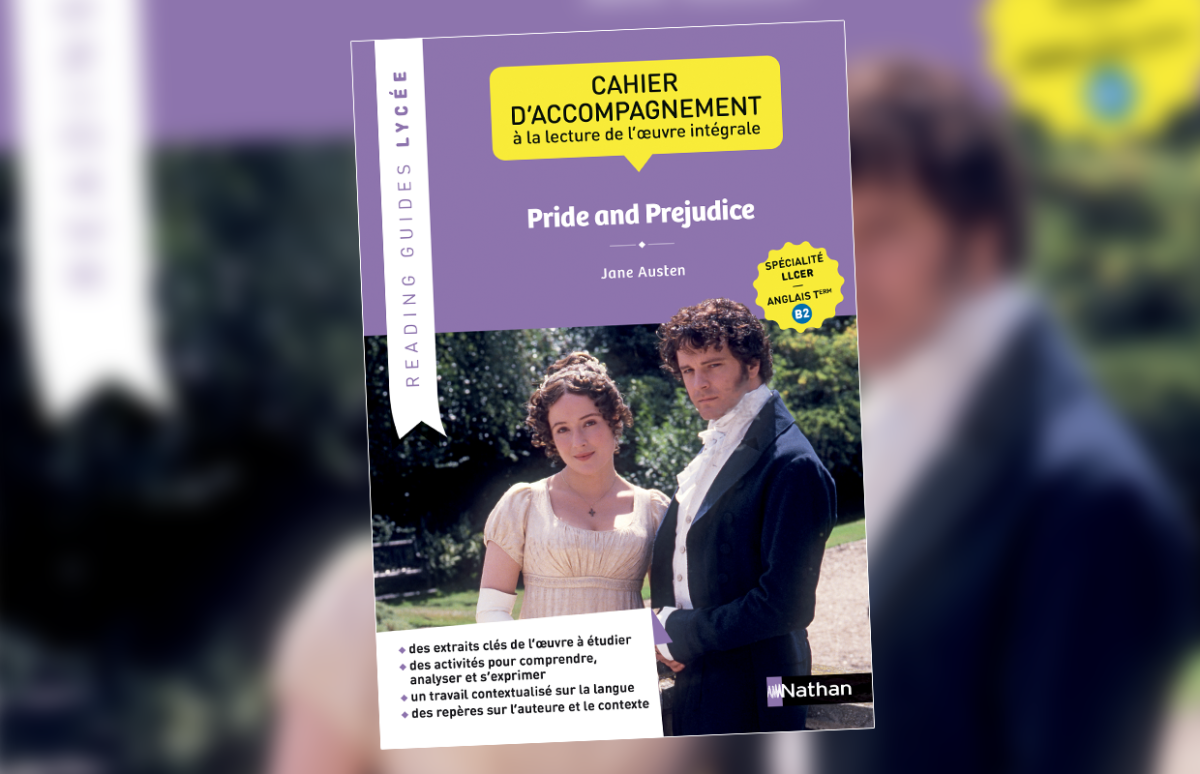As promised, our latest Reading Guide for Terminale LLCER, Pride and Prejudice by Jane Austen, is at the printers and will be available in the middle of November.
The six novels Jane Austen published between 1811 and 1817 (Sense and Sensibility, Pride and Prejudice, Mansfield Park, Emma and the posthumously published Persuasion and Northanger Abbey) have never been out of print. Austen never married but her novels about love and marriage in England’s upper classes in the Regency period she lived in have inspired romcoms ever since. She died at just age 41, unknown to the reading public that had embraced her first four novels published under the pseudonym "a lady".
Pride and Prejudice remains the most popular of her works, and the one that has inspired the most adaptations, spin-off books and films, and parodies over the years, such as Bridget Jones's Diary, Pride and Prejudice and Zombies, the Jane Austen's Dragons series, a whole variety of Mr Darcy novels and Death Comes to Pemberley by late British crime-fiction doyenne P.D. James.
The Bennets, minor gentry with a moderate fortune, have five children, all daughters. And archaic inheritance laws mean that on Mr Bennet's death, only a male relative can inherit the estate, which would leave Mrs Bennet and the five girls homeless and destitute. So marriage, already considered almost the only point of a woman's existence at this time, is a matter of survival for the five girls. The two parents and the daughters all have different views of the state of matrimony. The novel follows the fortunes of sweet, beautiful Jane, feisty, sarcastic Elizabeth and impulsive, irresponsible Lydia with various suitors including the rich and charming Mr Bingley, his richer, haughty friend Mr Darcy, future inheritor of the Bennet estate Mr Collins and handsome, rascally officer Wickham.
Many of the issues raised in Austen's ironic view of the hierarchical society she had to live in remain relevant today. The roles assigned to men and women in society and life partnership, the romantic and/or financial basis for relationships, the importance of appearance over substance may have evolved but still give plenty of food for thought.
You can find out more about our Reading Guide and see an extract online.
> The Other Bennet Sister
> Downton is Back
> Bridget Jones is Back
> A Summer of Romanticism and Costume Drama on ARTE
Tag(s) : "British history" "British literature" "Jane Austen" "LLCER" "Pride and Prejudice" "Reading Guides" "Regency" "romantic comedy" "romcom"






